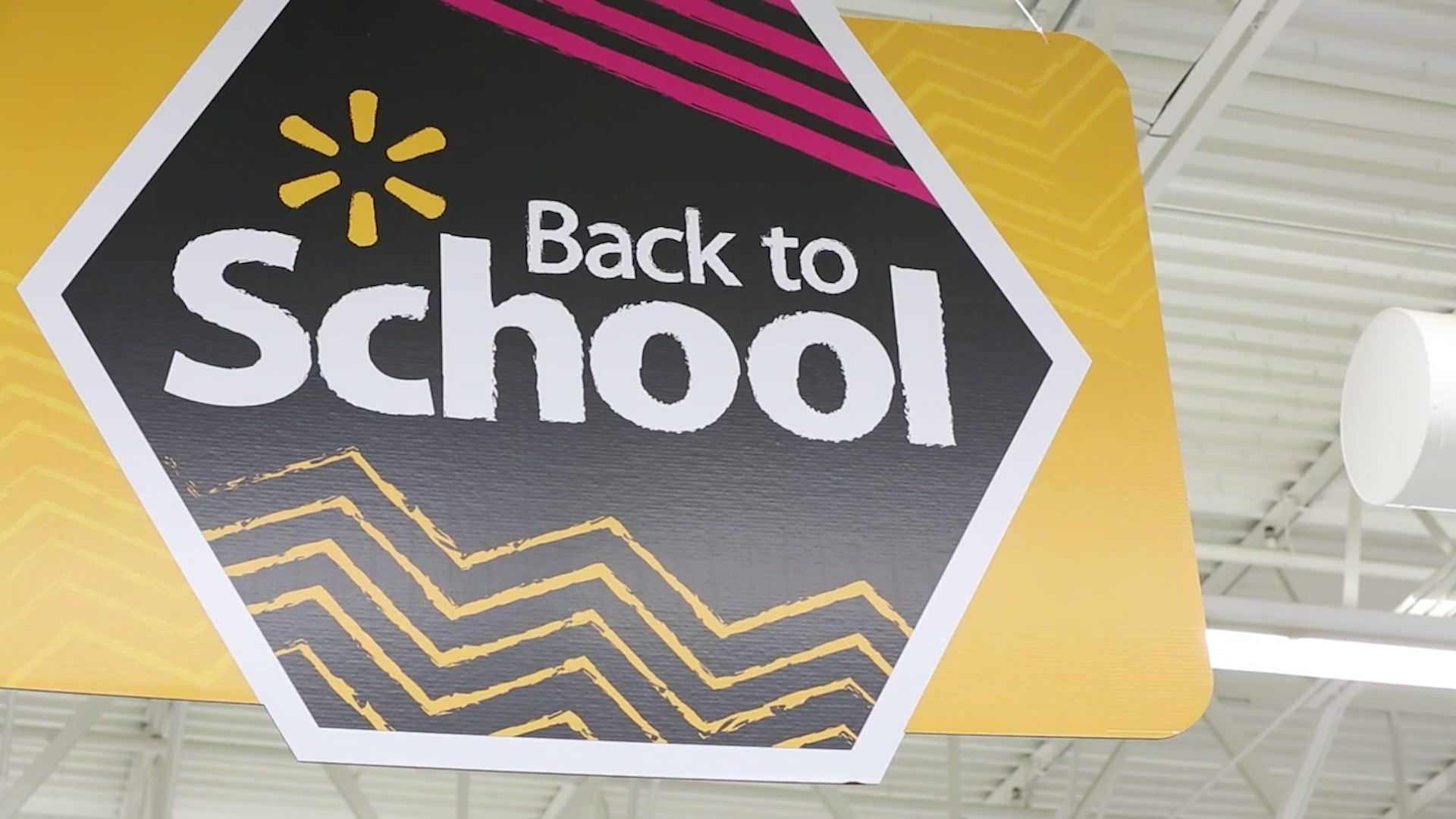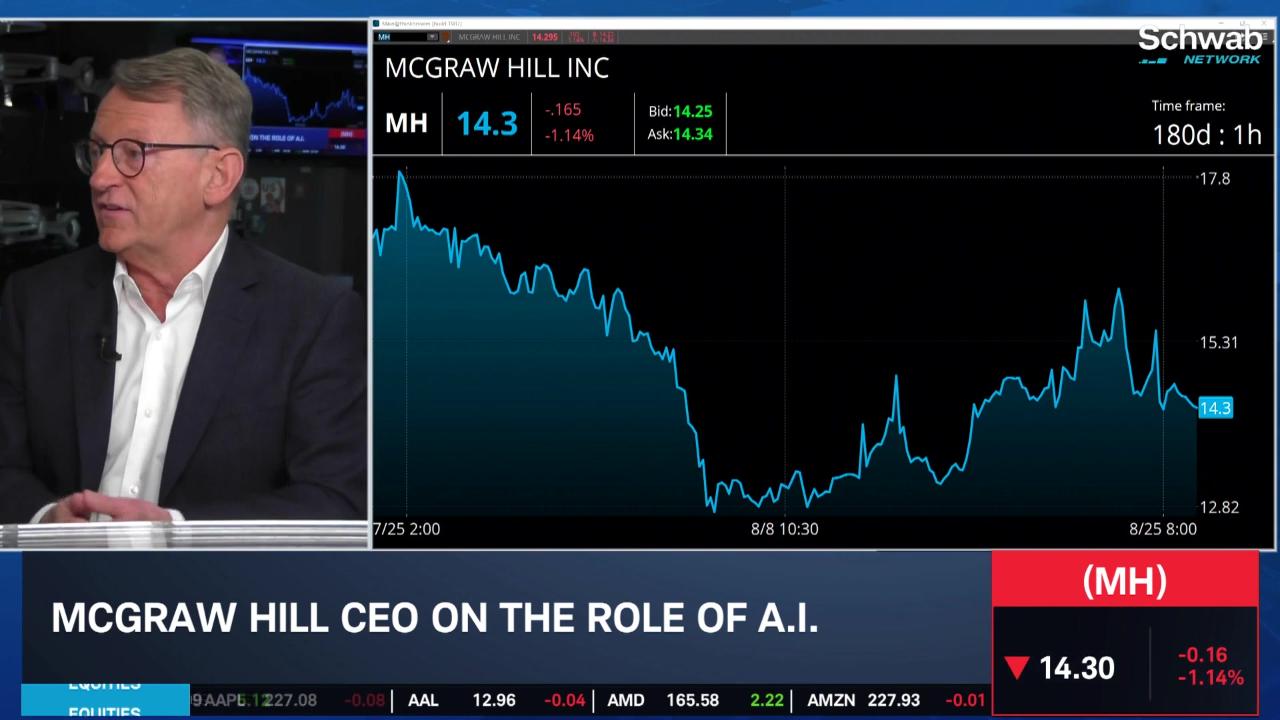- Market Minute
- Posts
- McGraw Hill (MH) CEO & the ‘Gamification’ of Education
McGraw Hill (MH) CEO & the ‘Gamification’ of Education

McGraw Hill (MH) is an education company that spans from pre-K through grade 12, higher ed, and professional learning. It made its IPO at the end of July. CEO Simon Allen joined Diane King Hall on Trading 360 to discuss the company, its debut, and its latest earnings.
Founded in 1888, it boasts the “first computerized publishing system” allowing instructors to “customize textbooks.” It also has a robust digital and print textbook business and is moving into “personalized learning” through AI.
American education is due for a makeover. International measures of education, such as the 2018 PISA, ranks the U.S. at 22, behind China, Singapore, Canada, Finland, and others. However, scores have likely worsened since then because of Covid-19 disruptions.
The pandemic hit students hard, and math performances haven’t recovered, among other milestones. The Learning Institute cites “math phobia” as a cause, citing a RAND study that found only 25% of middle and high school students “found their math classes interesting most of the time.”
The U.S. literacy rate is a well-publicized issue too, with The National Literacy Institute declaring 21% of U.S. adults were illiterate in 2024, and 54% were below sixth-grade level.
McGraw Hill works directly with schools and is trying to stay on the cutting edge. What does it think will re-engage students? Personalized, AI driven education and turning learning into games.
The history of using games to teach people is decades old – remember LeapFrog learning? However, these tended to be geared towards very young students. Many believe that learning games can benefit all ages and teach a broad variety of skills and knowledge bases. With the advent of technology in the classroom, especially personal tablets, teachers now have access to more options.
Digital materials aren’t just textbooks or quiz sheets anymore: “gamification” products like McGraw Hill’s ALEKS Adventure for K-5 teach math. “Everything we do is about engaging,” Allen emphasizes, “we have to make sure [the student] wants to continue learning.”
The American Psychological Association (APA) says that well-designed video games can teach “social emotional and academic skills.” The Harvard Graduate School of Education agrees, noting that elements of challenge, curiosity, and connection to real-world systems and skills form the basis of good learning games. A study in 2014 by the University of Rochester found that “fast-paced action games” made players “better learners” by helping them sharpen prediction skills and create “better templates” of the world.
Research shows that having fun while learning helps humans retain knowledge. C. Shawn Green, a professor at University of Wisconsin Madison, has studied the effects of video game play on vision, processing speed, multitasking abilities, and perception and cognition – and has even discussed how video games can make someone a better athlete. A 2015 paper by Patrick Fissler, et al., even posits that educational games improve brain health.
It’s not just for kids: turning back to McGraw Hill, another product Allen touts is in higher education: their platform Sharper, or as he calls it, “a textbook and TikTok had a baby.” It offers multimedia learning opportunities, including videos, games, readings and more, and personalizes to students.
Overall, it seems like McGraw Hill is focused on personalizing learning and following the science of education; it launched a new K-5 Core English Language Arts Curriculum this month “rooted in the science of literacy.”
On the financial side, their first public quarterly report, 1Q26, released on August 14. McGraw Hill reported EPS of $0.00 vs -$0.06 last year and revenue up $535.7 million vs $523.0 million last year. It set its 2026 revenue guidance at $1.99 billion to $2.05 billion.
Allen focuses on McGraw Hill’s recurring revenue, calling it “the highest quality of our revenue” and saying it creates a sense of predictability and stability. Recurring revenue now makes up about 70% of their total revenue mix.
He also notes that their digital revenue is strong and growing: “over 92%” of coursework can be delivered digitally, he says. Digital revenue makes up about 65% of their mix – for FY25, it was 82% ex-K-12.
Allen also sees potential M&A opportunities after a string of acquisitions over the last few years. Personalization has been a strategy for a long time, and they’ve bought quite a few companies focused on that over the last decade or so: in 2013, they bought ALEKS, in 2016 Redbird Learning, and in 2021, they bought Kidaptive.
“We are built now around subscription models,” with 26 million paid digital users, Allen says. “You’re going to see us evolve into a very data-driven company.”
Multiple analysts have initiated coverage on the stock with bullish ratings. Stifel calls it a “recession-resistant business,” citing the fact that K-12 clients pay up front, on contracts lasting 5-8 years. Morgan Stanley calls its valuation “attractive” and believes it will continue to gain market share.
As far as the stock, it only began trading on July 24. Since its debut, it is down over 8% but has been trending upwards from its August 6 low. With the school year starting again, traders may want to keep this name in mind.
Watch the full interview below:
Video Spotlight
Featured Clip
Tune in live from 8 a.m. to 5 p.m. ET, or anytime, anywhere, on‑demand.
Or stream it via thinkorswim® and thinkorswim Mobile, available through our broker-dealer affiliate, Charles Schwab & Co., Inc
Please do not reply to this email. Replies are not delivered to Schwab Network. For inquiries or comments, please email [email protected].
See how your information is protected with our privacy statement.
Charles Schwab and all third parties mentioned are separate and unaffiliated, and are not responsible for one another's policies, services or opinions. Schwab Network is brought to you by Charles Schwab Media Productions Company (“CSMPC”). CSMPC is a wholly owned subsidiary of The Charles Schwab Corporation and is not a financial advisor, registered investment advisor, broker-dealer, or futures commission merchant.

